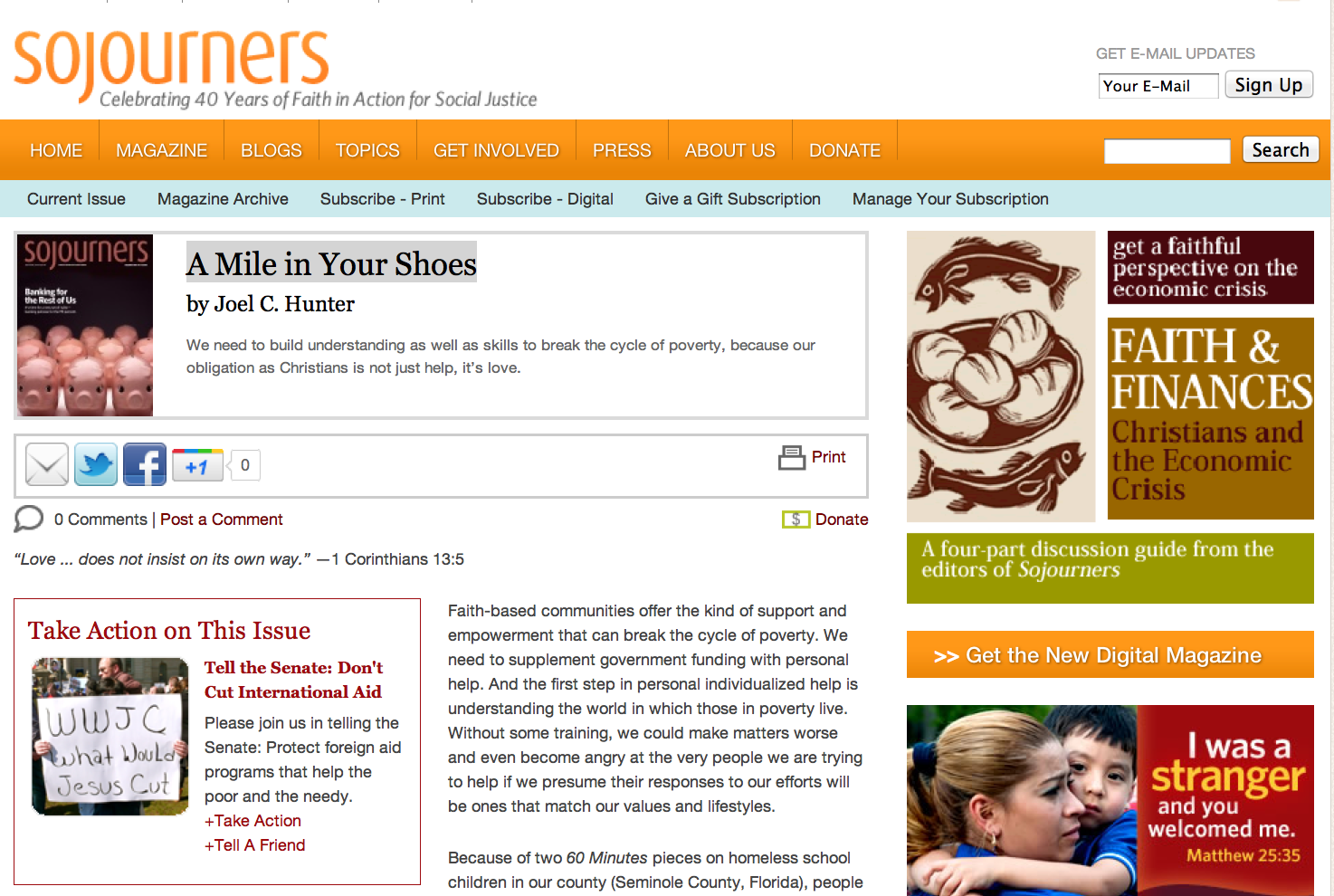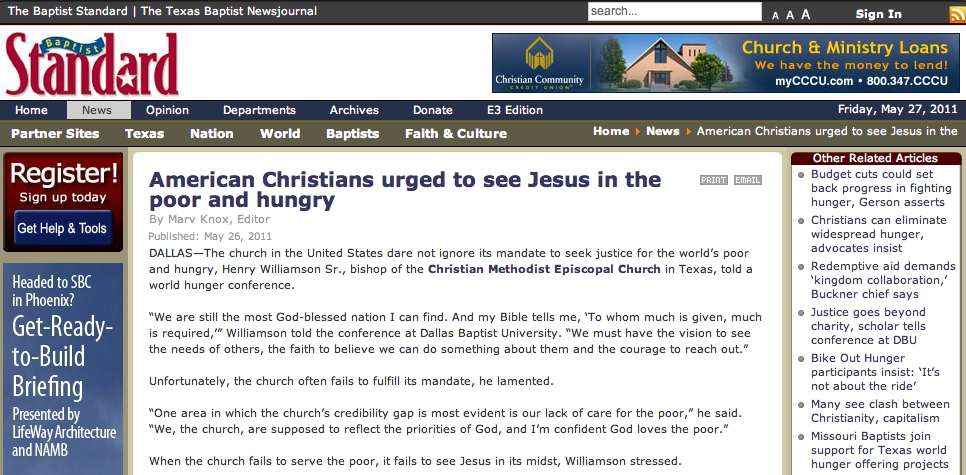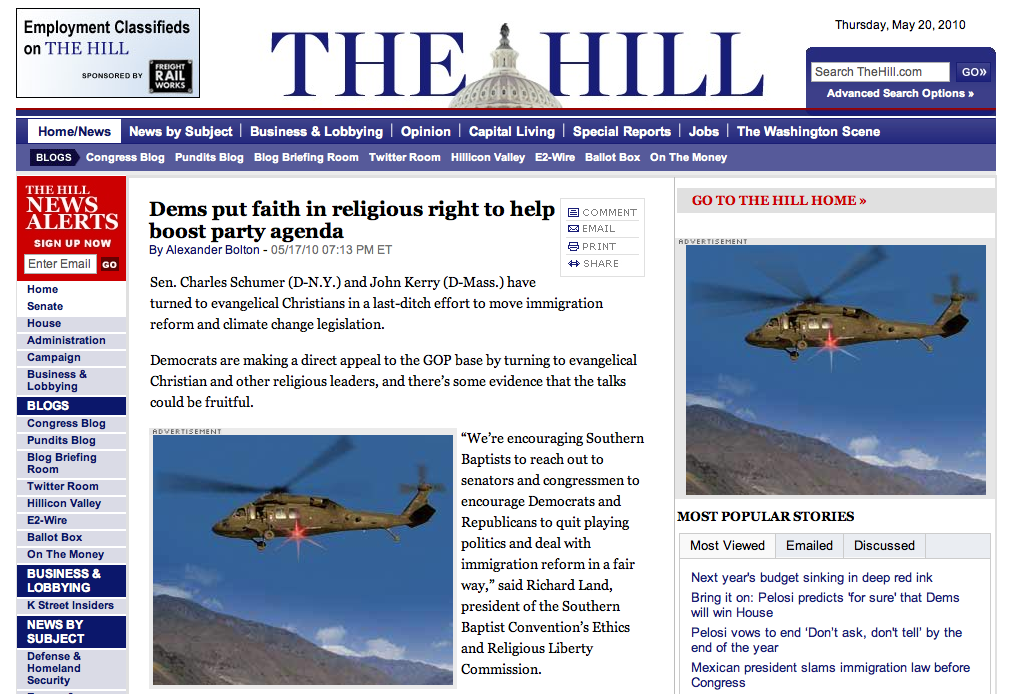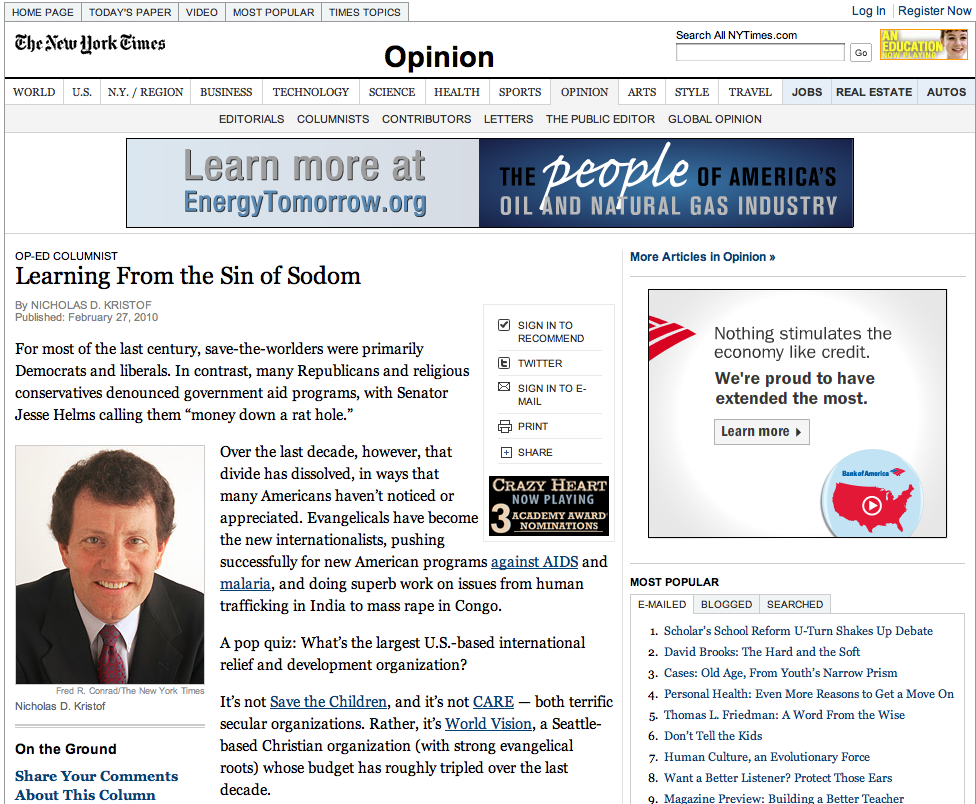"Supplement Government Funding With Personal Help," by Dr. Joel C. Hunter
 “Love ... does not insist on its own way.” —1 Corinthians 13:5
“Love ... does not insist on its own way.” —1 Corinthians 13:5
Faith-based communities offer the kind of support and empowerment that can break the cycle of poverty. We need to supplement government funding with personal help. And the first step in personal individualized help is understanding the world in which those in poverty live. Without some training, we could make matters worse and even become angry at the very people we are trying to help if we presume their responses to our efforts will be ones that match our values and lifestyles.
Because of two 60 Minutes pieces on homeless school children in our county (Seminole County, Florida), people in our congregation and other county groups got fired up to help those families transition out of poverty. It seemed wise to our church leaders that we train our congregation members in understanding poverty and some of the thinking of those who are poor. We adopted a course from the Billy Graham Institute for Prison Ministries on transitioning out of generational poverty.
Part of the course alerts those of us who have never been poor to our lack of knowledge on what it takes to survive without adequate income. Would you know where to get help if you had little or no money? What places offer food and how do you get there without a car? Which agencies offer which kind of services—housing, medical attention, job training, child care—in addition to any financial help you can get? Additionally—and this is key in being able to love well—how do those in poverty think differently than those in the middle or upper class?
This training is enlightening for many of its middle-class participants, who often are able to come to the point where we can see ourselves as likely to have the same response in various situations as do people living in poverty. Let me give a few examples. When you are in poverty, you ask a different question about meals than when you are in the middle class. In the middle class, people might ask, “Did you like it?” In poverty, the question might be, “Did you get enough?”
Those in poverty see resources differently. In the middle class we are more likely to turn to possessions in times of need. “Do you have savings? An emergency fund? An IRA?” For those in poverty, relationships are often the most valuable source of aid—“Who do you know that can help?”
When you are in the middle class, bills come first and vacations are optional. When you are in poverty, living with the constant pressure of survival, fun is so much more important—there may be nothing more coveted. The story is told of an elementary school girl who let it slip to her teacher that her family did not have a refrigerator. The good-hearted teachers pitched in from their already-meager salaries and surprised the family with a refrigerator. The next few days the girl was missing from school. When she returned, she again thanked the teacher and told her that they had sold the refrigerator and gone camping. They needed the break more than they needed the appliance! The way they chose to use this gift illustrates a difference in thinking that would make many who have plenty to share angry enough to stop engaging, if we are limited to our own perspective.
Both those in poverty and those who are not need training. We need to build understanding as well as skills to break the cycle of poverty, because our obligation as Christians is not just help, it’s love.
Dr. Joel C. Hunter is senior pastor of Northland Church in Orlando, Florida.
FIND THIS ARTICLE AT: http://sojo.net/magazine/2012/04/mile-your-shoes





